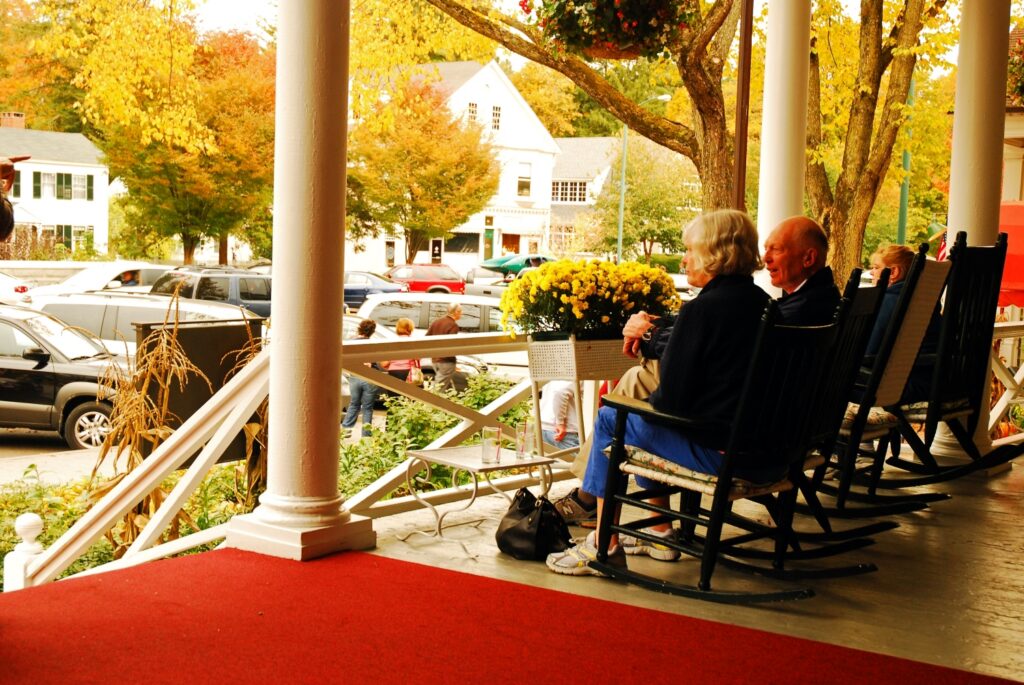Editor’s note: The John A. Hartford Foundation, the Administration for Community Living (ACL) and The SCAN Foundation fund the Aging and Disability Business Institute, led by USAging. The mission of the Aging and Disability Business Institute is to build and strengthen partnerships between aging and disability community-based organizations (CBO) and the healthcare system. As partners in the Institute, ASA and USAging are collaborating on a series of articles and case studies in Generations Today that highlight community-based integrated care networks.
Exacerbated by the pandemic, the direct care workforce (DCW) shortage is finally hitting the mainstream news on a regular basis. In Arizona, where older adults make up almost 18 percent of the population, some 41,000 jobs for direct-care workers are expected to open in the next seven years.
Well aware of this demographic challenge, the United Way of Tucson and Southern Arizona, funded by a grant from Mercy Care, a Medicaid insurance provider (through the Arizona Health Care Cost Containment System) and partnering with Pima Council on Aging, the Region 2 Area Agency on Aging in Arizona, is piloting a workforce development project. The unique program to bolster the direct care workforce combines candidate recruitment with high quality training and peer support to increase interest and improve retention. The three-year project got off to a rather rough start as it began in January 2020 at the height of the pandemic, but the process used to recruit and train workers holds promise.
United Way of Tucson and Southern Arizona’s Senior Director of Elder Alliance Elizabeth Cozzi describes the initiative like this: United Way of Tucson hired a Community Health Worker (CHW) to recruit, vet and secure training options for DCW candidates, as well as to provide light case management for candidates—supporting them through the process, identifying and mitigating individual barriers to work such as helping them make appointments for pre-employment requirements, setting them up with training classes and connecting them with provider agencies, as well as running a peer support group.
The CHW also offers incentives to apply, such as gas and bus cards, money for ride shares, childcare, setting up potential workers with interview coaching and professional clothing or gift cards. The CHW recruits potential workers at job fairs, community events and in faith communities, and pre-interviews said candidates.
‘This caregiver workforce crisis is very much aligned with caregiving shortages for children.’
United Way Tucson also funds pre-employment requirements that can pose huge barriers for this workforce, such as paying for fingerprint cards, first aid/CPR classes and DCW certification (in Arizona that’s a testing and training program required for person’s providing non-medical care) and then walks candidates through the process. The average cost of the requirements is $250, most of which is needed before a caregiver earns their first paycheck.
Finding and Training Workers
Before this pilot got off the ground, Cozzi said the Elder Alliance, anchored at United Way of Tucson, had identified the caregiver shortage as a focus area of great need. United Way sought partnerships with local health plans to build this workforce and payers came up with different initiatives. Mercy Care funded providers and training institutes and United Way hired the CHW.
Pima Care at Home, a subsidiary of the Pima Council on Aging, and a partner in this initiative, offers a high quality DCW training program, where the bulk of caregivers are sent for training and through which many are then hired by Pima Care.
United Way also runs a caregiver peer support group. “It’s a neutral place for them to come and get moral support. Being a direct care worker can be a very lonely profession, so this gets them together, and we do professional development during support meetings,” said Cozzi. New caregivers also can seek mentorship from more experienced direct care workers.
They hold trainings via such programming as Dementia Friends, practice end-of-life conversations, and help workers to identify possible allied health career paths. United Way Tucson has developed a relationship with several educational entities, including the Caregiver Training Institute, Pima Community College and the University of Arizona, through which DCWs can explore future career opportunities.
Advocacy for Direct Care Work
The Elder Alliance is a large, cross-sector partnership of stakeholders in aging, including nonprofits, healthcare, business, private citizens and volunteers who all come together to share their goals of supporting older adults, said Cozzi. Within this Alliance are 10 action teams involved in more overarching issues in aging such as advocacy, age-friendly communities, the Behavioral Health and Aging Council, the End of Life Care Partnership, dementia, direct care workforce, housing, transportation, mature workforce, and community mobilizer and connector groups.
The Direct Care Workforce action team includes educators analyzing the long-term allied health professions to give direct care workers better quality training and a clearer path for advancement. The team also includes provider agencies, health plans and a lobbyist at the state level, all working to improve direct care work conditions on the ground.
Right now, the mean wage for direct care work in Tucson is $12 to $13 an hour, but the downside, as Cozzi pointed out (beyond that wage), is the need for multiple pre-employment requirements and training, which can mean it takes at least a month to onboard as a direct care worker. In contrast, one could be hired within a couple days at McDonald’s at a similar wage.
“There are lots of barriers to entry there. The pay needs to be elevated,” said Cozzi. “But then the caveat is that the reimbursement rates have not substantially increased in years. Agencies don’t feel they have the financial wherewithal to pay more than they are now.”
Instead organizations are offering perks such as bonuses, transportation, childcare and other incentives. And there is an advocacy effort to raise the minimum wage in Arizona to $15.
Outcomes and Planning Ahead
Circling back to the pandemic effect on this particular initiative, Cozzi said all small scale recruitment of direct care workers had to shift from in-person to digital and funds designated for events and meetings were reallocated to an awareness campaign via social media, online ads and public service announcements. The ramp up was slow, but now the efforts seem to be paying off, with people engaging online.
The original plan was to support 300 new caregiver candidates, 75 the first year, 100 the second and 125 the third. The first target was missed due to COVID-19, but Cozzi said the CHW is now inundated with requests and is playing catch up. UWTSA is still gathering data on the efficacy of this approach, but the inundation of interest is a positive sign that the CHW outreach approach could work.
Cozzi also is looking at the bigger picture, as she said that the United Way has several areas in which they advocate—health education, financial wellness, and education for children and families—and “one thing we’ve noticed is that this caregiver workforce crisis is very much aligned with caregiving shortages for children. On a global scale these folks are underpaid and undervalued, and we’re looking at a cross-age group, cross-sector advocacy effort around caregiving in general. We need to assemble teams and their partners to combine efforts to move the needle faster by including more voices in the discussion.
“When it comes to direct care for older adults, Biden’s infrastructure plan was a great idea, as policy change has to occur on a national level,” Cozzi added.













